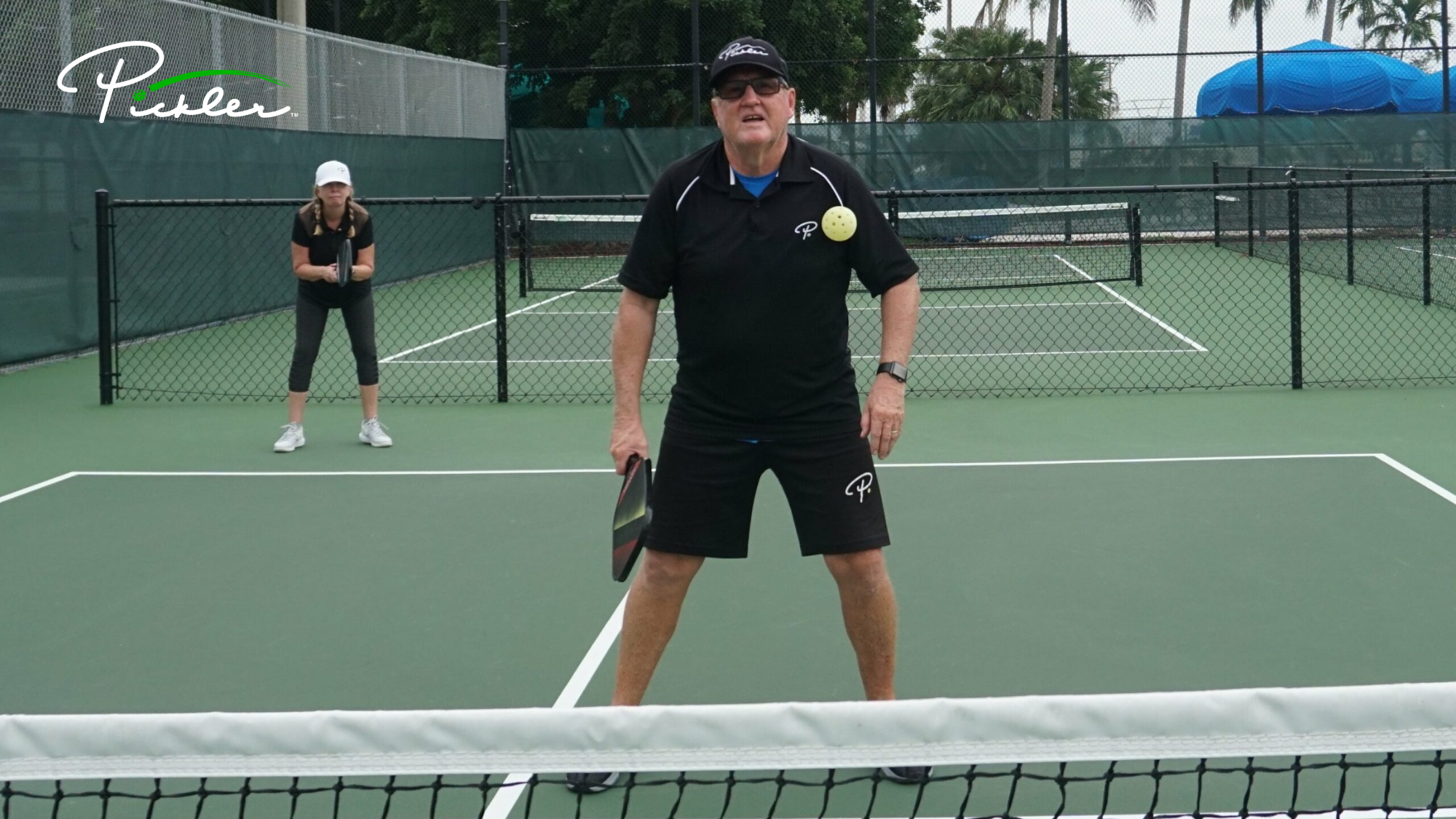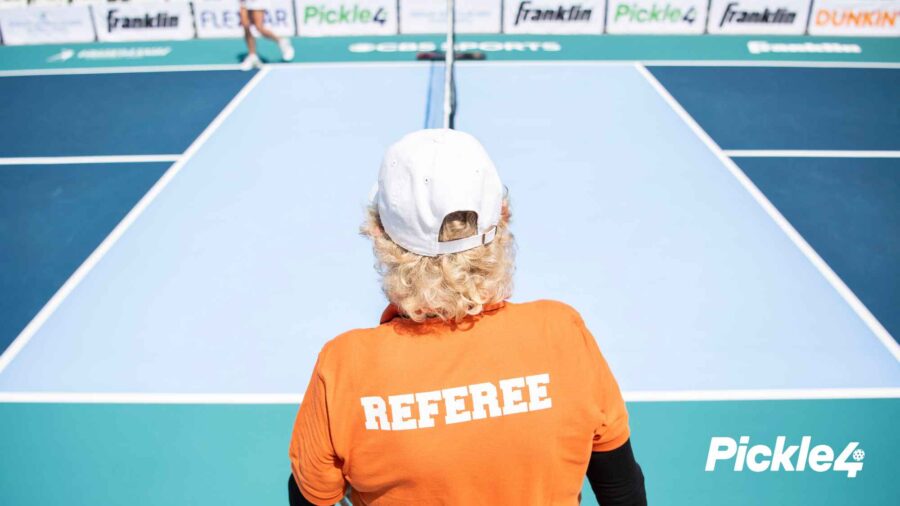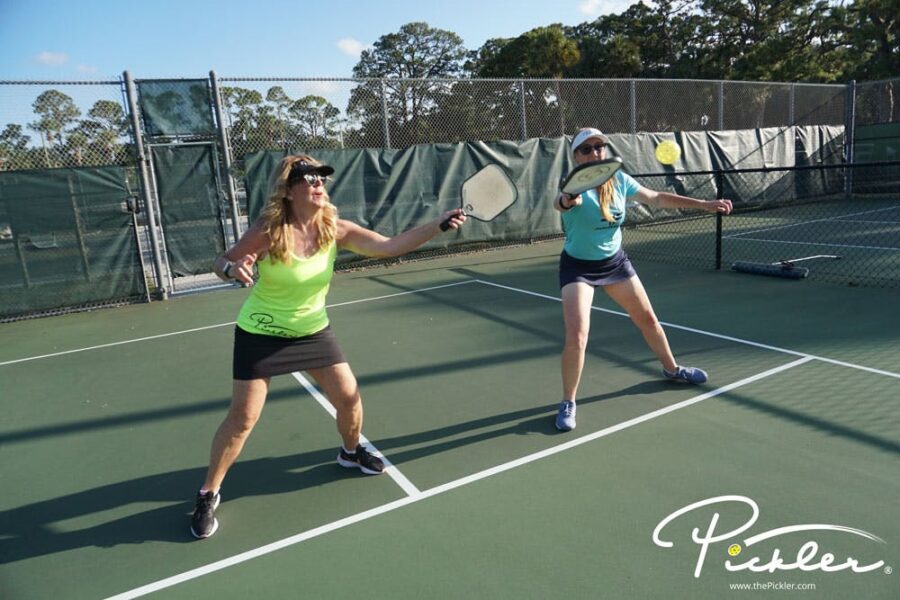By Mark Peifer, USA Pickleball Certified Referee; Past Chairman, USA Pickleball Rules Committee
QUESTION: Rule 4.N.1, which is under the heading of receiver faults, states that it is a receiver fault if “The receiver or their partner is touched by or interferes with the flight of the ball before it bounces.” Some players hit the ball with a lot of velocity and it can be hard to get out of the way. My wife, who is sixty, got hit in the chest when she was two feet behind the baseline, but per this rule, we lost the point. I’m curious about the logic of this. I can understand if the receiver was inside the court and got hit, but not in my wife’s case when the ball didn’t come close to the service box. Can you please explain the basis behind the rule?
ANSWER: Great question. Let’s examine this a little bit. You said your wife was two feet behind the baseline. But, how far outside the court would someone have to be standing for this to not be a fault? Could one foot be outside the baseline line and one inside the line? Some would say having one foot out of bounds is ‘clearly’ out of bounds. If not, could I stand out of bounds and have part of my body extend over the line in bounds? In other words, how far beyond the baseline would I have to be to satisfy the new criteria you are suggesting would not result in a fault if I get hit on the fly on the serve? Why is the serve any different than any other shot with respect to Rule 7.I?
To extend this a little further, what if someone serves the ball and it looks like it is clearly going out of bounds and hits someone before a strong wind blows it back in bounds? Doesn’t the server deserve the right to have their ball bounce on the court surface to establish with certainty whether or not the serve was good or not?
Not to be flippant, but if we said something like ‘if the player is standing two feet outside the court boundary then it’s a fault on the server if they hit the player’, how and who gets to determine if the two feet is met? The ‘what ifs’ involved in enforcing that type rule are too many to list. When we write rules, we also have to determine how enforceable they are.
Unfortunately, at some point, players must hold themselves accountable for getting out of the way. The current rule is simple to understand and enforce. Pay attention and, Don’t. Get. Hit. That’s an easy rule to understand. Get out of the way and let the ball bounce. Then and only then can we tell whether or not the ball is in or out. The scenario you mention has its own name in our sport; it’s called the Nasty Nelson, after the individual who popularized it. If it’s done on purpose, it’s a bush move, I’ll admit, and it questions someone’s sportsmanship. But, as a referee, I would have no way of determining if a server did it purposely.




